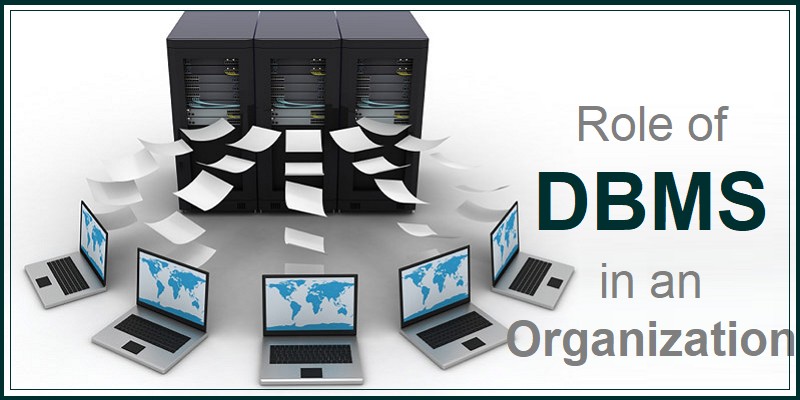Home » Database Management System
Category Archives: Database Management System
Benefits of Database Development for Your Business
Business data is continuously changing and evolving and this has created a new dimension of growth as well as challenges for the companies all over the globe. It is by accurately updating, recording and tracking the data that they can address the challenges on one hand and also make use of the immense potential that are offered by the sector. Business data are helping to extrapolate relevant information and use them through more targeted marketing, increased operation efficiency and recognize business performance.

Today, database development is something more than a list of tables that are collected to meet the current business needs. Your database should have some features and it should also be able to cope up with any request for data. The properties that your database should have are:
- Agile: This means that your database should be scalable and able to evolve to accommodate all your future requirements, be it a change in the product or compliance requirements, it should be able to respond dynamically.
- Comprehensive: Your database development should allow the users to access the data they need very easily. This means that they should define their criteria that the database should achieve and how it should cope with any ad hoc requests for information.
- Efficient: All the users should be able to use and access the data swiftly without any excessive response time.
- Integrity: The users should be able to trust the security of the database and that the data offered is reliable.
- Usable: Your database development should also satisfy the user requirements and should be dynamic and flexible to cope up with any changing requirements.
Every company produces data which need to be stored properly for future use. Database development is important to get the most out of the data that has been stored, but there are many businesses that don’t have the time or knowledge to gather and process data in large amounts to optimize their performance. Let’s take a look at how database development can help in your business growth.
Easy management of customer data and relationships:
Your customers are the lifeblood of your business. A good CRM database is powerful enough to store and process everything that includes customer contact details, new prospects, leads and business opportunities, interaction history and accounts.
Effective inventory tracking:
Managing the inventory is very important if you have an ecommerce store. With improper management of data, you will only be disappointing your customers and damaging your reputation. Manually updating your inventory will only lead to errors or misplacing the spreadsheets and more. With database development, you can avoid those risks and reduce lost sales while increasing your opportunities for growth.
Centralized system:
If you have a growing business and you want to keep a track of the increasing amount of data, then you need to have a good database system that can help you to manage business critical data safely, securely and centrally to increase your chances of success.
Analyze data in different ways:
If your database is professionally developed and customized as per your business needs, then you will be able to analyze the data in different ways. You may store the data for future analysis and can turn this redundant data into a valuable resource. This will help you to identify the areas of your business that can be exploited in various ways to drive growth.
Role of Database Management System in an Organization
Business organizations depend heavily on accurate data and information for proper functioning, updating and tracking. Within the organizations, employees use various data to complete their accounting works, calculate sales and create invoices for their customers. All these activities need an easy access to data through a computerized database, so that one can make use of the immense potential of the system and also address the challenges of the business.

It is only by collecting and updating accurate data that companies can use the information to attain their business goals in a more systematic manner.
DBMS plays an important role in a company and here in this blog, I will discuss with you its importance:
Easy data access:
Modern DBMS is based on programming languages that are called structured query language, which is used to access, delete or even update the data that are present in the tables. Whenever the users are in need to access the data, they can easily do it if there is a DBMS and they will also get the updated version of the data. Organized data helps to manage and enhance the abilities to correlate, report and generate a query of the collected information of the organization.
High accuracy and completion:
There are many tasks in an organization that needs to be completed with high accuracy and also within time. The waste of time throughout the company by individuals seeking or trying to derive accurate information is actually a great loss. This can be reduced with a centralized database, which is easily accessible by all and can also provide you with quick answers to questions that may be really difficult to gather manually.
No duplicate and useless data:
Employees of a company don’t want unnecessary data stored, which has to be sorted before further use. A good database offers a simple front-end that is easy to use by the users and offers structures that humans can understand without much difficulty. The UI makes it possible for the users to focus on their task without having to handle the intricacies of the database forms or links. A DBMS service provider will help you to keep your data well organized and make huge amounts of data more manageable by removing the duplicate and useless ones and offering the users only what they need to complete their job.
Automated reports:
Business organizations often look for automated processes that can help them to complete repetitive tasks that would involve a lot of time if done manually. DBMS helps to compile a wide array of information and makes it available for report generation that can be used to take crucial business decisions. DBMS helps to bring people and processes together and offers a consistency of spelling and syntax and also reduces much duplicated effort.
Data relationships:
DBMS programs allow different data tables to relate to each other easily and when a database contains different tables and there is a need to relate to each other, then the system helps to arrange the relationship between the two tables easily. This often helps the managers of the organization to check which salesperson has the highest sales and which products are selling the most.
“To conclude, it can be said that database management is an integral part of all organization and it helps to work in an efficient, collaborative and systematic manner”.